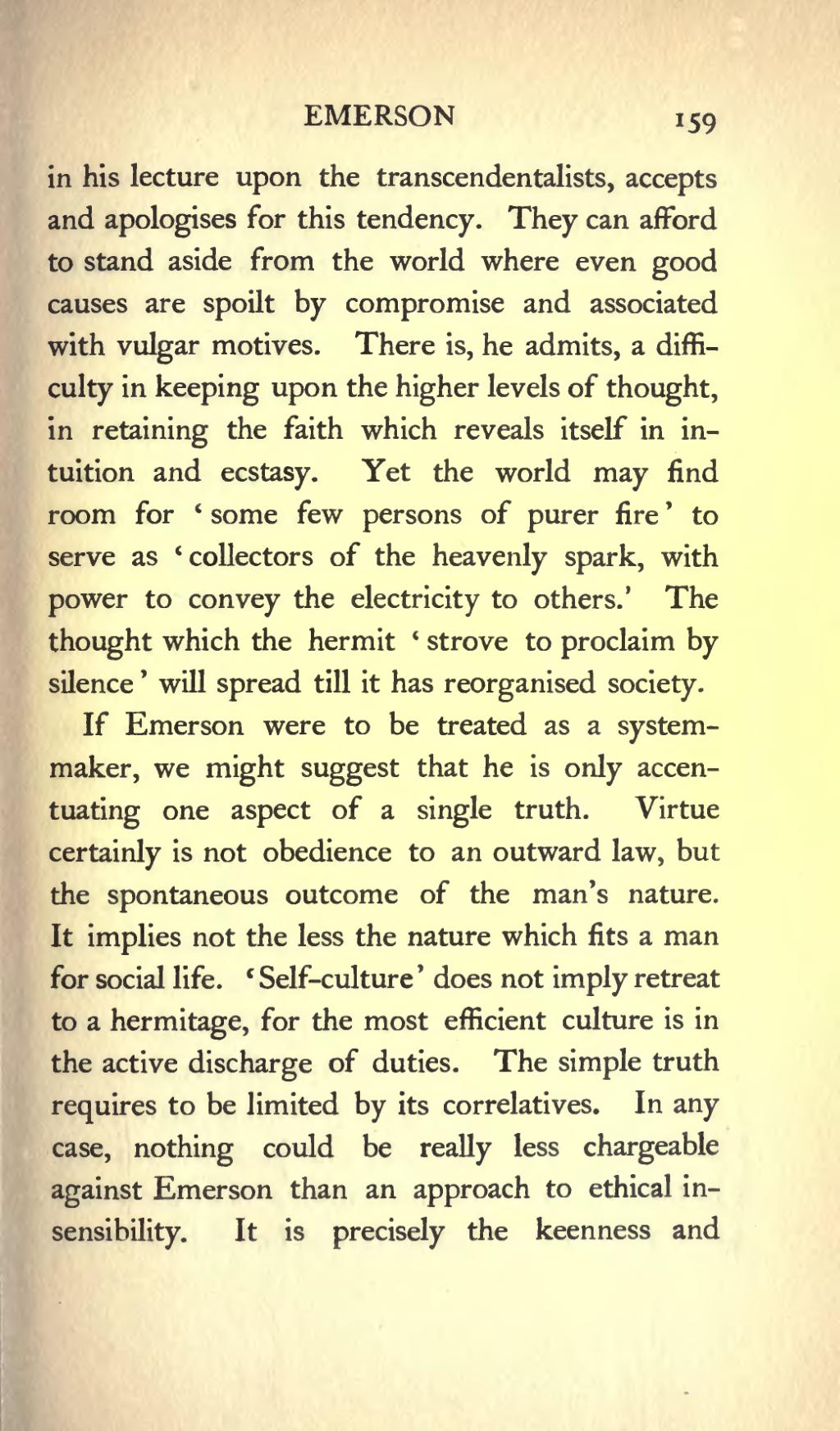in his lecture upon the transcendentalists, accepts and apologises for this tendency. They can afford to stand aside from the world where even good causes are spoilt by compromise and associated with vulgar motives. There is, he admits, a difficulty in keeping upon the higher levels of thought, in retaining the faith which reveals itself in intuition and ecstasy. Yet the world may find room for 'some few persons of purer fire' to serve as 'collectors of the heavenly spark, with power to convey the electricity to others.' The thought which the hermit 'strove to proclaim by silence' will spread till it has reorganised society.
If Emerson were to be treated as a system-maker, we might suggest that he is only accentuating one aspect of a single truth. Virtue certainly is not obedience to an outward law, but the spontaneous outcome of the man's nature. It implies not the less the nature which fits a man for social life. 'Self-culture' does not imply retreat to a hermitage, for the most efficient culture is in the active discharge of duties. The simple truth requires to be limited by its correlatives. In any case, nothing could be really less chargeable against Emerson than an approach to ethical insensibility. It is precisely the keenness and

